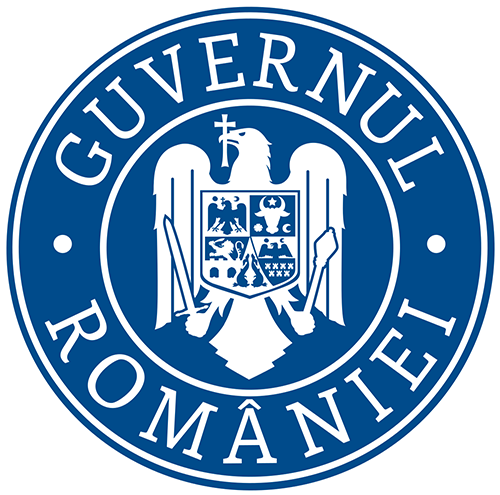The Faculty of International Business and Economics of the Bucharest University of Economic Studies hosted the 14th edition of “The Future of Europe” International Conference on the 26 & 27 October 2023. The event was organised in partnership with the European Institute of Romania (EIR), the Romanian Institute of Economic Forecasting, the Institute for World Economy, the Centre for Financial and Monetary Research – Victor Slăvescu, and the Romanian Society for Economics.
In the framework of this partnership, the representatives of the European Institute of Romania (EIR) had the privilege of meeting again in Bucharest two distinguished collaborators of EIR who inspired and bolstered the development of EIR’s research activities, namely professor Andras G. Inotai, former director of the Institute of World Economy in Budapest, and Mr. Jacques Pelkmans, visiting professor at the College of Europe in Bruges, and Senior Fellow at CEPS in Brussels. Together with professor Ilya Lingorski, member of the governing council of the Bulgarian National Bank, they have been the keynote speakers at this edition of “The Future of Europe” International Conference. In their keynote addresses, some of the following ideas have been emphasised:
- The Eastern enlargement of the European Union was a geographical one, whereas the future enlargement of the EU will have a geopolitical dimension. The enlargement and the deepening of the integration are two processes that complement each other at the European level (on this occasion, specific reference was made to the accession of Romania and Bulgaria to the Schengen Area and the eurozone);
- The deglobalisation is a highly unlikely event, but we might witness a new form of globalisation. Thus, it would be necessary to strengthen the regional supply chains, and to rely on them rather than on the global ones. Consequently, the predictability, sustainability and productivity will be essential elements to consider for the resilience of these regional supply chains;
- We have to consolidate not only the national identity, but also the European identity (i.e. through the change of the voting system and the renunciation of the veto in CFSP). The communication plays a major role in combatting populism and Euroscepticism;
- The future of the European Union should be global, and in order to achieve this objective we need to overcome our internal problems;
- The EU regulates different aspects related to the single market whenever, under the Treaties, it deems necessary to intervene/act; 90% of all EU regulations target the risks to public health, safety, and the environment;
- In order to understand the importance of the EU single market, we must look at the growth of the GDP and of the trade. In this sense, it was emphasised that the United Kingdom had doubled its trade after joining the European Union in 1973;
- The internal market of the EU represents the foundation of the Economic and Monetary Union (EMU). However, the European services market is still insufficiently regulated by the EU and, therefore, more needs to be done to address this issue.
This conference offered a good opportunity for dedicating a panel to the topic of circular economy and its contribution to a sustainable future. This panel was coordinated and moderated by the representatives of the European Institute of Romania (IER). The invited speakers at this panel session were Mrs. Eliza Vaș, Head of the European Studies Unit, EIR, Dr. Aurelia-Ioana Chereji, university lecturer at the University of Oradea, and Mr. Florian Neagu, deputy director of the Financial Stability Department, National Bank of Romania. This panel highlighted some of the following ideas:
- The transition to a circular economy entails new models of production and new consumption behaviours, as well as the adoption of measures that foster sustainable choices;
- Starting from November 30, 2023, Romania will implement the Guarantee-Return System (SGR), which requires the payment of a 0,5 lei guarantee for every purchase of a beverage, so as to determine the buyers to return the packaging (made from glass, plastic, or metal) to one of the collection centres in order to get their guarantee money back;
- The debate on the carbon footprint is at an early stage in Romania, though there are already tools that might enable us to measure our personal carbon footprint (i.e. some online platforms offer this service);
- Romania has imported pollution, as in the recent decades a large part of its citizens have bought second-hand automobiles (45% of the cars Romanians own are more than 16 years old). In order to counter this phenomenon and encourage the purchase of more eco-friendly vehicles, a change of business strategy at the level of the big automotive groups that Romanian companies are part of might be convenient, especially with respect to the environmentally friendly modular design of future cars;
- The EU should reduce its dependence on the imports of fertilisers and pesticides used in intensive agriculture, and at the same time it should take the necessary measures to ensure the food security of all the Europeans that are or will be affected by climate change;
- Taking into consideration the forecasts on the global demographic growth, we can assume that there will be an increase in the food demand at the global level, fact which will put a greater strain on the environment;
- For Romania, the cost of the green transition has been estimated at 60 billion euro (until 2030) and 356 billion until 2050 (source: Bloomberg). Banks in Romania have allocated a small amount for the green projects in their investment portfolio, their stance in this regard being also influenced by the multitude of legislative changes in this field.




